First things first, wine is acidic.
In fact, not only is there acid in wine but it is of vital importance that there is acid in wine.
You see, as with a lot of food, acid is naturally occuring in grapes and this acid is then carried over into the finished wine during the fermentation process.
The presence of acid in wine is balanced out by other elements such as tannins, alcohol level, sweetness and aromas so it’s not always immediately obvious that the acid is there.
How to Detect Acid in Wine
There are two ways to detect acid in wine.
- The 1st is to become more familiar with which wines are more likely to have high acidity levels. We’ll cover this later on but when in doubt always ask the person selling or serving you wine, as they’ll be more than happy to assist you with this.
- The 2nd is to pay attention to the effect wine has in your mouth as you drink it.
It might sound silly but the way our mouth reacts to wines we drink can tell us an awful lot about them.
When it comes to detecting acid in wine, wines with high acidity will cause a lot of saliva to be released when consumed.
You should feel this happening along the sides of your mouth and gums and this is because acidity is a signal to the brain that food is about to be consumed - your mouth is getting ready to eat.
Take some time to notice next time you drink some wine, or something else with high acidity.
See if you can notice the sensations occurring and the way your mouth responds to these high acid levels.
Types of Acids in Wine
There are multiple different types of acids to be found in wine.
The 4 primary types of acid to be found in wine are:
- Tartaric acid
- Malic acid
- Citric acid
- And Lactic acid
Tartaric, malic and citric acid are the most common forms of acid found in wine.
Lactic acid is the acid more commonly associated with milk and can be found in wines such as Chardonnay that have developed a creamier texture during fermentation.
Why is Acid Important in Wine?
Acid is really important in wine.
The presence of acid is crucial in balancing out the other elements of alcohol, tannins and sugar, ensuring one does not overpower the other.
Acid is also very important for ageing wines and most wines suitable for long-term cellaring will have high acidity levels.
Over time the acids will soften but the quality of the wine will have been maintained.
Do Tannins Make Wine More Acidic?
Tannins and acidity can both be very powerful presences in wine, so it’s important they are well balanced when together.
Not all high acid wines require tannins, in fact a lot of wines with high acidity levels, such as Riesling and Pinot Grigio, have low tannin levels.
This way the tannins don’t exacerbate the acidity and make the wine taste unpleasant to drink.
Can Low Acid Red Wines Age?
Acidity is a very important element in a wine’s ageing process.
As a wine ages it’s acidity levels tend to drop, and a wine can taste softer over time.
Because of this red wines with low acidity levels are less likely to age well.
It’s vital then, if you want to cellar a low acid red wine, that the wines have high levels of tannins, to help compensate for this.
List of Low Acid Red Wines
Here is a list of red wines with low acidity for you to look out for:
1. Bordeaux blends
These wines involve nothing but low acid grapes.
Malbec and merlot feature heavily in these blends, But don’t worry, because of their high levels of tannins these wines are still perfect for ageing.
2. Zinfandel

When grown and made in Sunny California, zinfandel makes for some really punchy, robust red wines with little acidity.
3. Carmenere
Similar in character to Merlot this is a silky smooth red wine whose acidity won’t keep you up at night
4. Pinotage
A fantastic New World wine with minimal acidity, South African Pinotage is a great option for a low acid red wine.
Is White Wine Acidic? (pH levels)
 Acidity is measured on something called a pH scale which is used to help scientists compare the acidity levels of different liquids and substances.
Acidity is measured on something called a pH scale which is used to help scientists compare the acidity levels of different liquids and substances.
- Lemon juice sits at about 2 on the pH scale and our friend coffee comes in with a pH rating of 5.
- Wine sits somewhere in the middle, and you can expect your wines to rate between a 2 and a 4 on the pH scale.
- For lower acid white wines you want a wine that is closer to a 4pH than a 2pH.
How to Detect Acid in White Wine
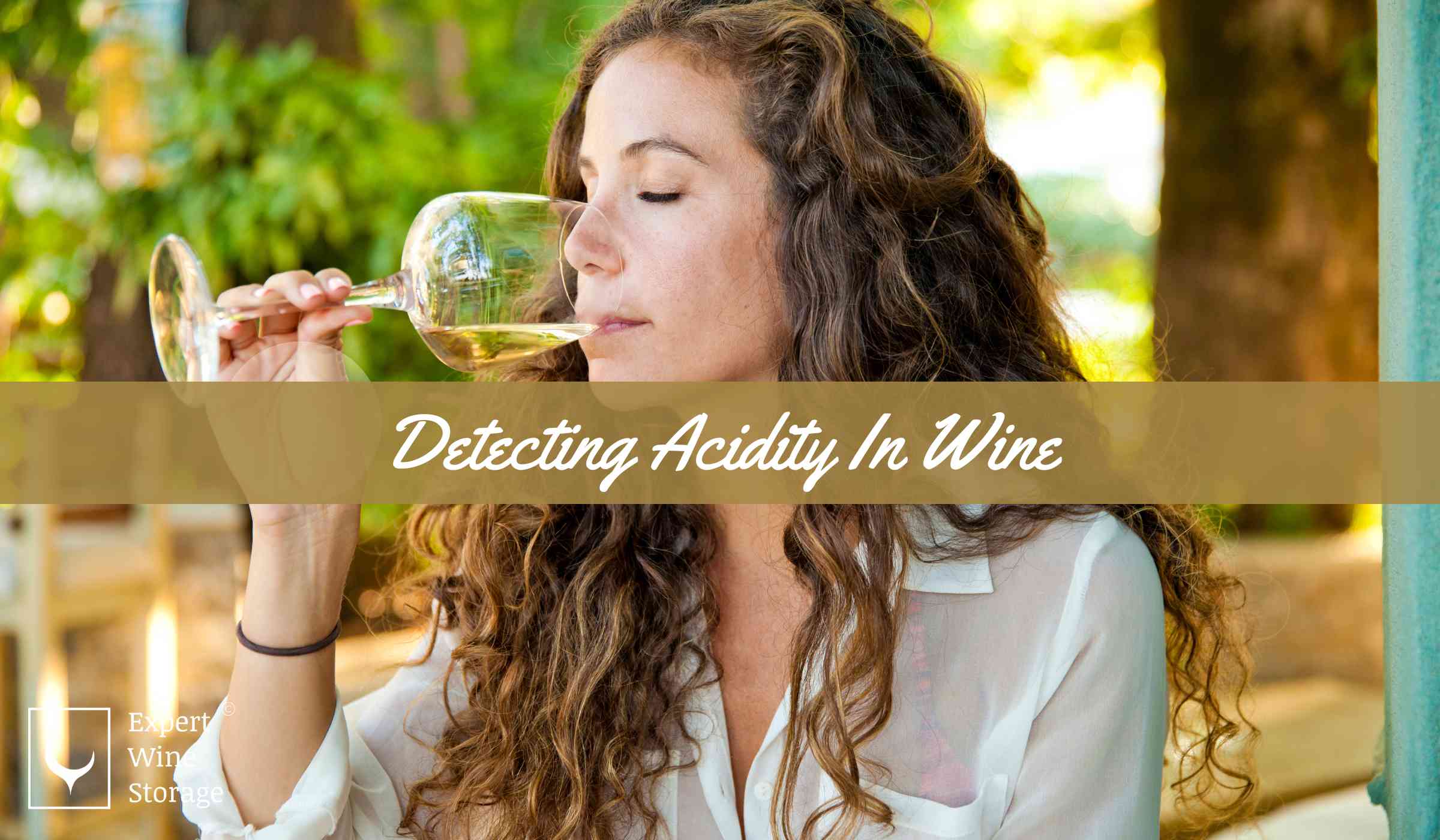 When it comes to detecting acid in wine, wines with high acidity will cause a lot of saliva to be released when consumed.
When it comes to detecting acid in wine, wines with high acidity will cause a lot of saliva to be released when consumed.
Your mouth will literally water in response!
You should feel this happening along the sides of your mouth and gums and this is because acidity is a signal to the brain that food is about to be consumed - your mouth is getting ready to eat.
Take some time to notice next time you drink some wine, or something else with high acidity.
See if you can notice the sensations occurring and the way your mouth responds to these high acid levels.
Top 10 Low Acid White Wines
Here is a list of white wines that tend to score lower on the acidity charts:
1. Gewurztraminer
Grown in France and Germany this super aromatic white wine grape tends to have quite low levels of acidity.
2. Viognier
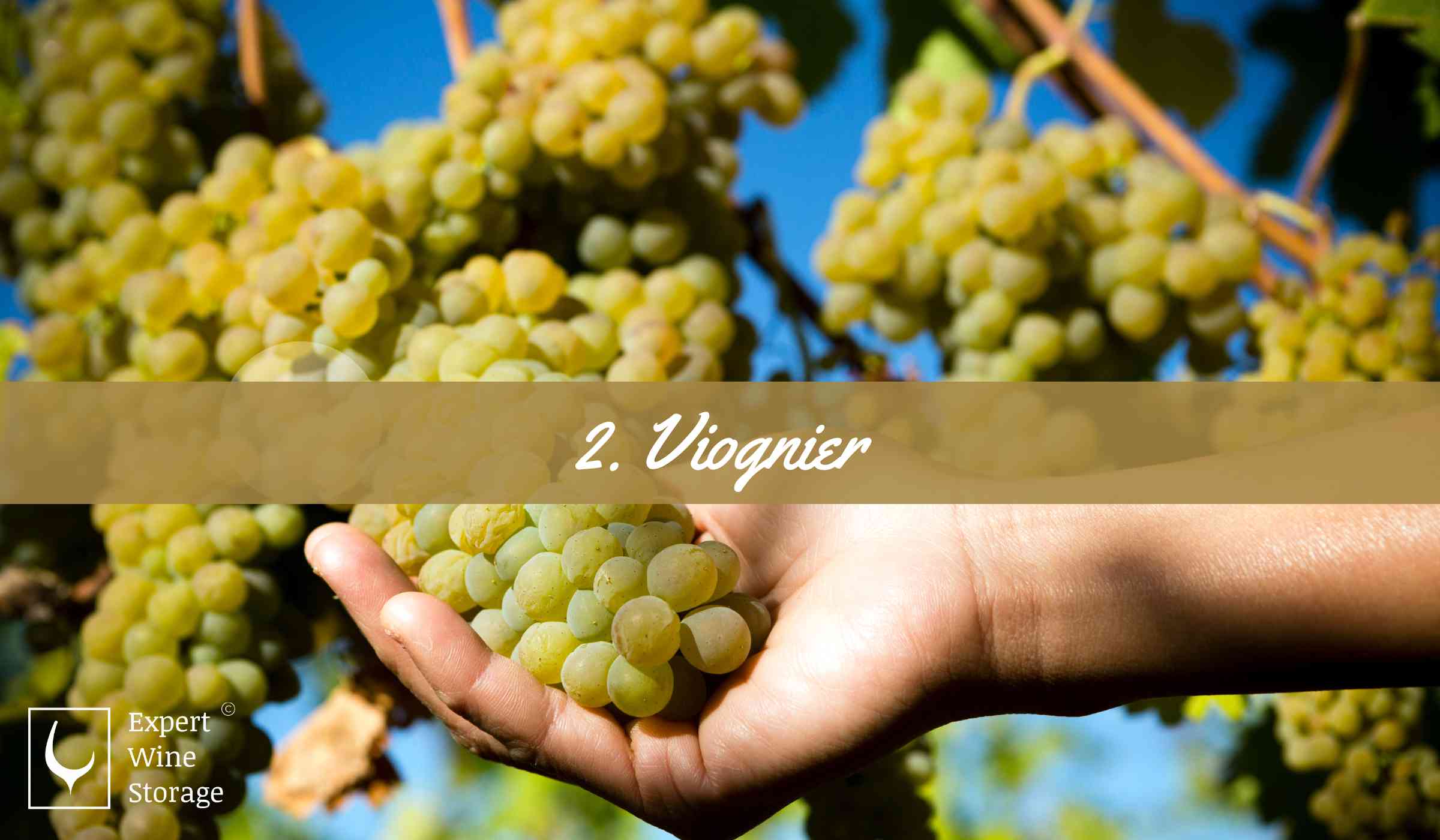 Bursting with peach and honeysuckle this versatile grape is especially low in acid once it has been oak aged.
Bursting with peach and honeysuckle this versatile grape is especially low in acid once it has been oak aged.
3. Marsanne
Rich, nutty and big bodied, this is a bold French grape with remarkably low acidity levels.
4. Roussanne
A great white wine for roasted chicken dishes, this slightly oily white wine is a great option for those seeking out low acid varieties.
5. Chardonnay
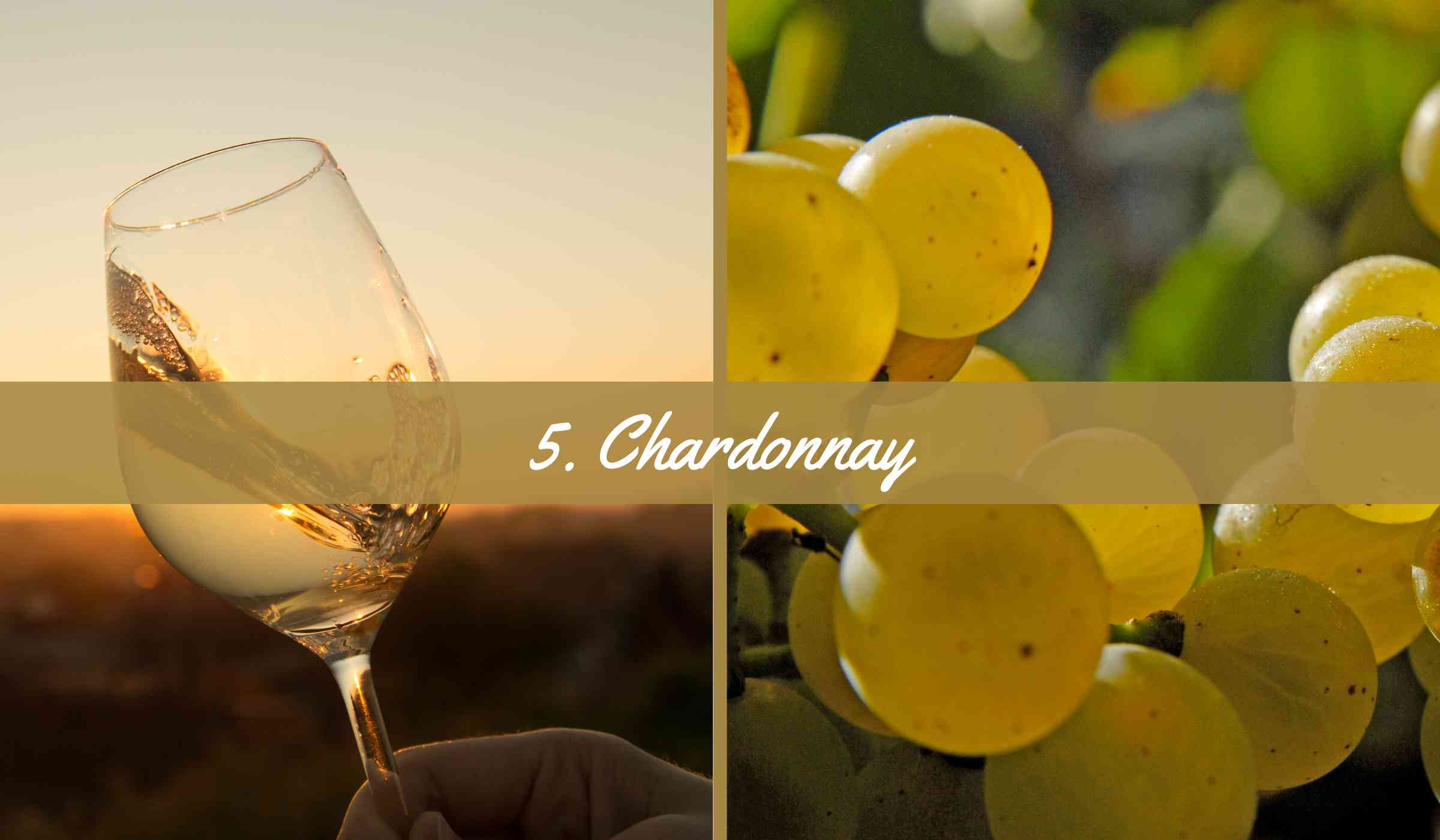 There really is a Chardonnay for everyone, and oak aged Chardonnays are beautiful, creamy low acid options for white wine lovers.
There really is a Chardonnay for everyone, and oak aged Chardonnays are beautiful, creamy low acid options for white wine lovers.
6. Savvatiano
This low acid white grape is from Greece and bursts with vanilla, apricots and fresh mint.
7. Fiano
A honeyed, easy drinking white wine from Italy with low acidity.
8. Grenache Blanc
A low acid white grape cousin of the beloved red Grenache grape.
9. Semillon
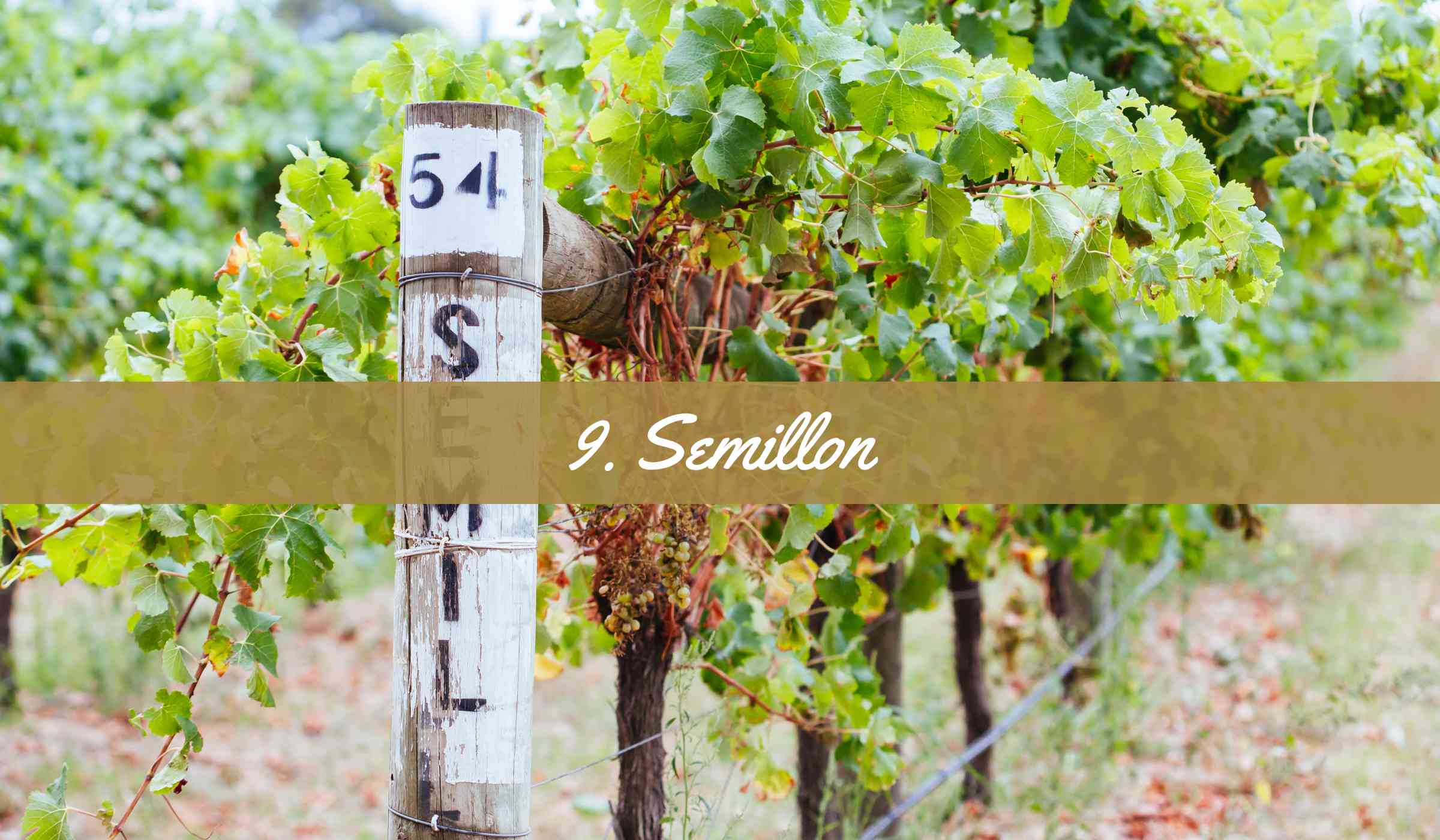 A tasty low acid white grape from the Bordeaux region of France.
A tasty low acid white grape from the Bordeaux region of France.
10. Viura
Also known as Macabeao, this is beautifully crisp and low acid white wine from Spain.
High Acid White Wines to Avoid if You Want a Low Acid Option
If you’re looking to avoid white wines high in acid it may be smart to avoid the following:
1. Chenin Blanc
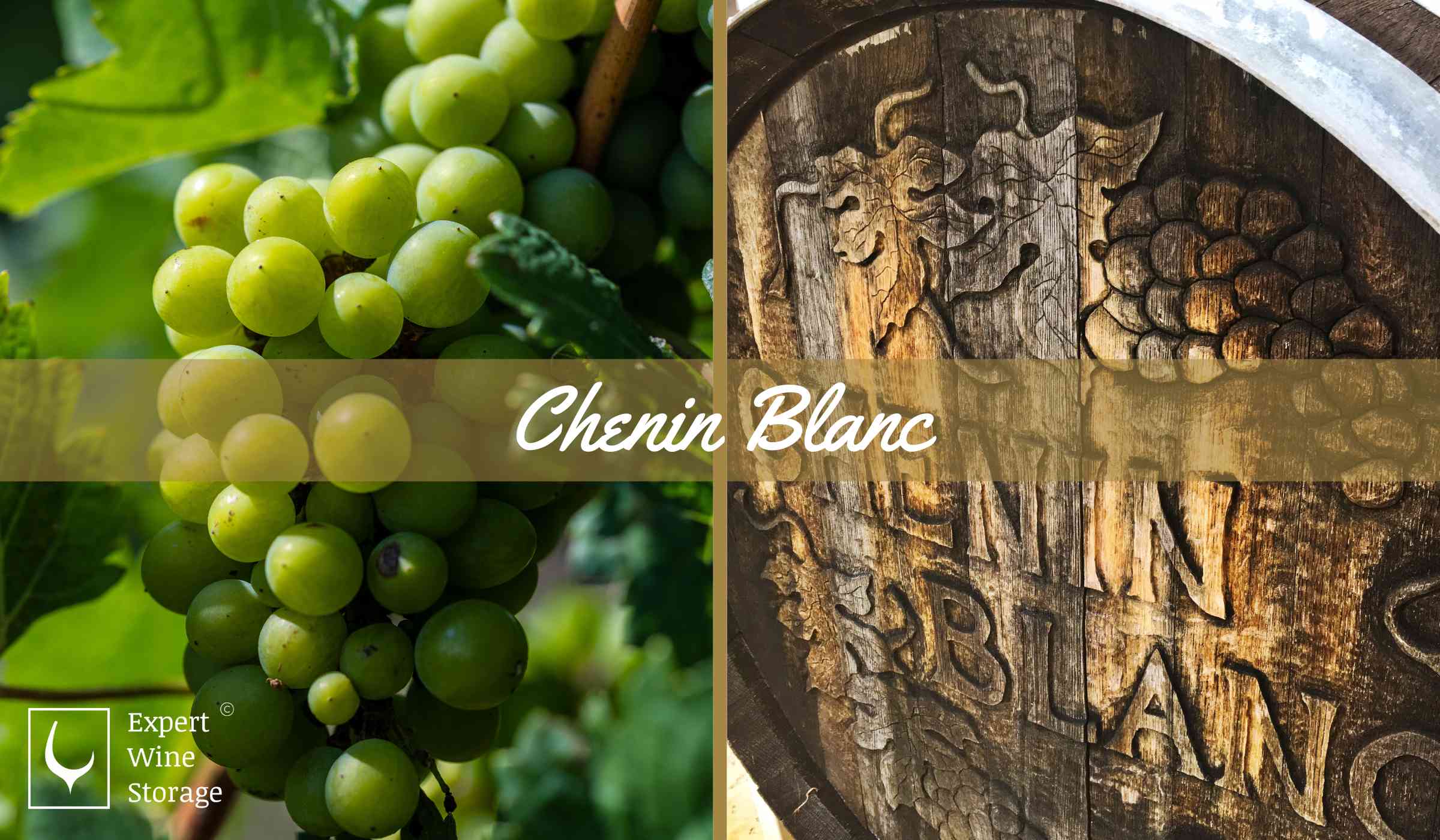
Chenin Blanc is an especially zingy white grape with lots of acidity
2. Champagne
we’re sorry to say it but Champagne is really quite high in acid and may not be suitable for a low acid diet.
3. Pinot Grigio

An Italian grape practically bursting with lemon and lime acidity
4. Sauvignon Blanc

A fan favourite all over the globe, this very popular white wine is also sadly very high in acidity
5. Vinho Verde
Young and vibrant, this Portuguese variety is known for its acidic notes of lemon juice and lime zest.
How to Pair Food with Low Acid White Wines
If you’re avoiding acidity in your wine then it's best to avoid acidity in your food, too.
Pairing an acidic dish with a wine low in acidity will result in a lot of flabby and unpleasant flavours.
Instead look for dishes with lots of:
- Green vegetables,
- Creamy sauces
- or Sweeter, fruitier components
Why Acid is Important in Wine
Acidity is really important in wine.
The presence of acid is crucial in balancing out the other elements of alcohol, tannins and sugar, ensuring one does not overpower the other.
Acid is also very important for ageing wines and most wines suitable for long-term cellaring will have high acidity levels.
Over time the acids will soften but the quality of the wine will have been maintained.
Types of Acids in Wine
There are multiple different types of acids to be found in wine.
The 4 primary types of acid to be found in wine are:
- Tartaric acid
- Malic acid
- Citric acid
- Lactic acid
Tartaric, malic and citric acid are the most common forms of acid found in wine.
Lactic acid is the acid more commonly associated with milk and can be found in wines such as Chardonnay that have developed a creamier texture during fermentation.
Before You Go...
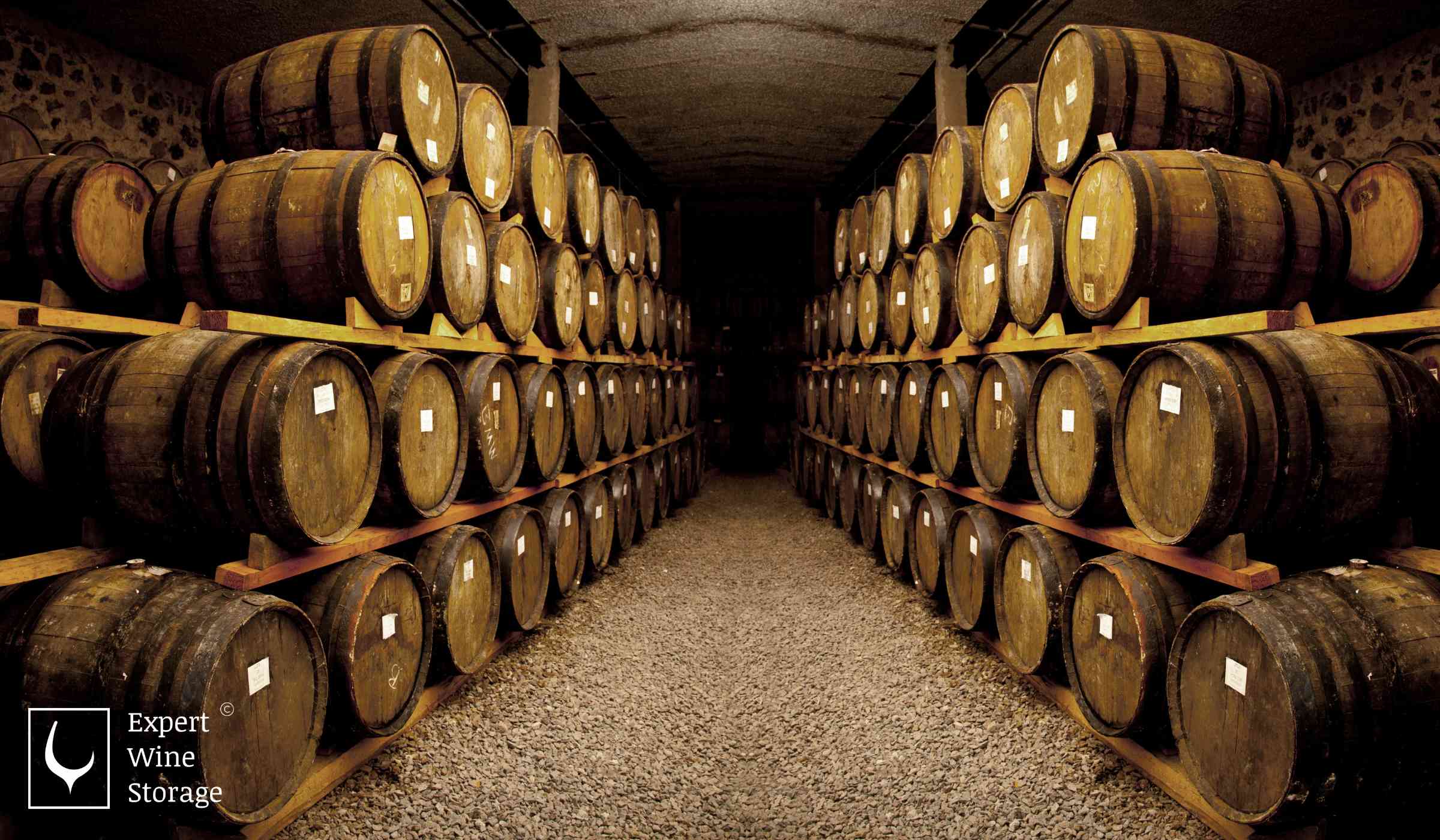
We hope this article answers any questions you may have on Low Acid Wines.
If you have any questions, leave them in the comments, or email us at info@expertwinestorage.co.uk
Related Guides
If you have any questions, leave them in the comments, or email us at info@expertwinestorage.co.uk
Learn more about other Wine Types here.
You can also shop new wine coolers online at Expert Wine Storage



 Author:
Author:
Leave a comment (all fields required)